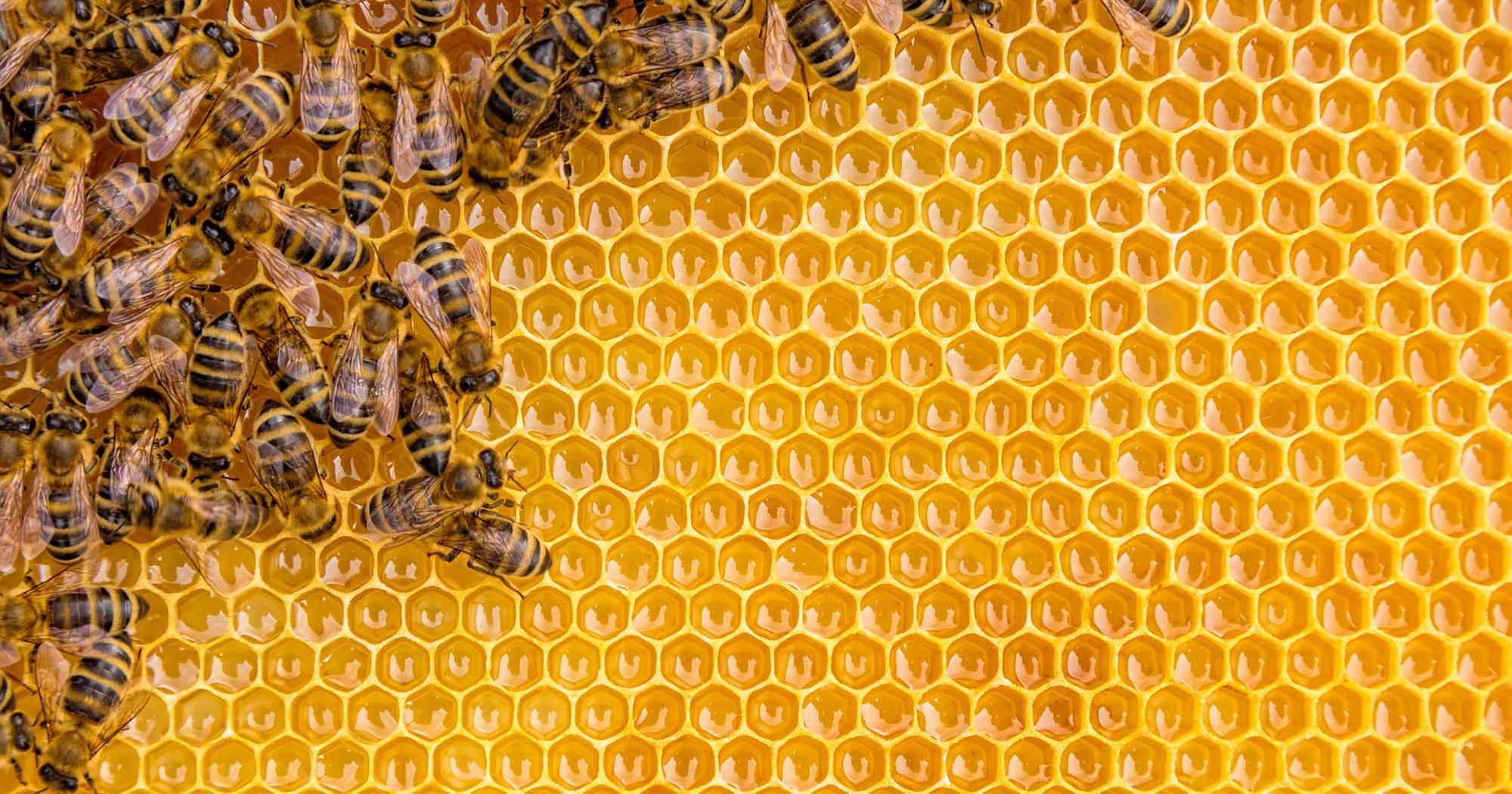ETSU joins global conversation on bee decline with innovative research
Early in her career, graduate student Skylar Mathieson had a deep interest in medicinal plants, particularly in the hills and mountains of central and southern Appalachia.
“These plants have developed their medicinal purposes for a reason that wasn’t for humans,” she said. “What was the reason?”
That question is powering eye-catching research at East Tennessee State University.
The work is happening under the direction of Dr. Melissa Whitaker, an assistant professor in the Department of Biological Sciences and a respected scientist whose work has centered on plant-insect interactions.
Her team is examining the effects of chemicals that naturally occur in the nectar of some plants, from caffeine to nicotine, on bees.
“We know that dietary caffeine makes some pollinators more alert, more efficient. It improves their memory. It makes them faster learners,” Whitaker said. “So, these compounds act on pollinator brains in very similar ways as they do on the human brain. There might be some parallels that we can draw in terms of the natural history of some of these chemicals.”
Critical to the research has been the work of graduate student Joshua Foley, who helped construct robotic flowers in Brown Hall. Bees interact with the 3D-printed flowers, feeding on artificial nectar in a way they normally would outside a lab.
This research happening at ETSU puts the university in a global conversation about the decline of bees, a species humanity depends mightily on for pollination. Across the world, farmers are having to work much harder to keep crops pollinated as bees die off at troubling speeds.
“It’s really important to understand everything we can about them, as well as these plant-insect interactions,” said Mathieson.
Whitaker has found herself floored by the ingenuity of her graduate students.
“This has been such a hands-on project from the very beginning. We conceived and designed and built this project from the ground up, and with some heavy collaboration from Engineering, Engineering Technology, Interior Architecture and Surveying,” said Whitaker, noting that the research is still in the early stages. “It’s an incredible testament to how critically important graduate students are as the driving engine of research at ETSU.”
From discoveries entirely new to science to books about little-known maladies, this group is part of an ETSU community that regularly generates cutting-edge research.

Video Transcript
Dr. Melissa Whitaker:
I think if you asked my mother, she would say that she always knew I was going to be an entomologist because I loved insects as a kid.
Skylar Mathieson:
I feel like it's common knowledge that bees are declining, the bee population is declining. And so it's really important to understand everything we can about them.
Dr. Melissa Whitaker:
What's drawn me to this project specifically now is a great interest in why psychoactive substances exist in nature. Well, we know that in pollinators, caffeine makes them alert, more efficient. It improves their memory. It makes them faster learners.
So these compounds act on pollinator brains very similar to how they act on the human brain. And so there might be some parallels that we can draw in terms of the natural history of some of these chemicals.
Skylar Mathieson:
These plants have developed their medicinal purposes for a reason that wasn't for humans.
And so what is that reason? Was it for insects?
And that just kind of led to the idea of, are these plants manipulating insects in a way?
Dr. Melissa Whitaker:
This has been such a hands-on project from the very beginning. We have conceived and designed and built this project from the ground up.
David Zollinger:
So I was approached by some people from biology wanting to study bee behavior, pollinator behavior, and in engineering, one of the things we tend to try and do a lot is interdepartmental collaboration. I saw an opportunity to do some 3D modeling and 3D printing
Joshua Foley:
Our pollinators are in danger from a changing world. And what we're looking into is maybe not necessarily like directly saving them, but the more we understand about the natural worlds we get it hands-on, say what these additives do in their natural environment,
I think we can more readily understand addiction in say humans.
###
East Tennessee State University was founded in 1911 with a singular mission: to improve the quality of life for people in the region and beyond. Through its world-class health sciences programs and interprofessional approach to health care education, ETSU is a highly respected leader in rural health research and practices. The university also boasts nationally ranked programs in the arts, technology, computing, and media studies. ETSU serves approximately 14,000 students each year and is ranked among the top 10 percent of colleges in the nation for students graduating with the least amount of debt.
Stay in Touch
Follow ETSU on Social
 Sam Wilson West Parking Lot C...
Sam Wilson West Parking Lot C...